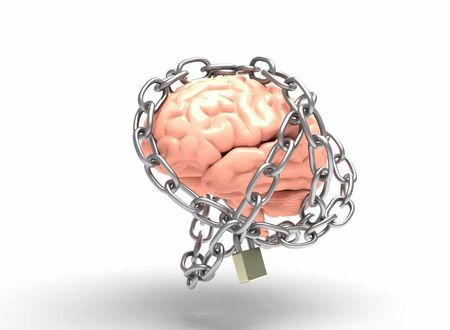Don’t Worry. Learn To Think.
You Worry Because You Don’t Know How To Think.
—
Do you worry? Well, everybody worries to some extent. But I mean to say, do you have the habit of worrying? If you have, then you should read this post.
What’s worrying anyway? The simple definition is, when you think too much and experience tension, that’s ‘worry’. Worrying is also a form of thinking, but when you can’t find a solution through your thinking, you experience worriness. You see, thinking is not the problem. You just have to think rightly.
Just try to examine this thing. When do you worry? When you have to take an important decision, but you don’t know what and how to do, when you go through unpleasant situations and you don’t know how things will turn out, or when you are simply apprehensive of your future, you worry. Is this striking chords with you?
You see, worrying has these elements—lack of right information, fear and confusion. When you don’t have the right information, when you are confused and when you are fearful regarding something or the other, you start to worry. Isn’t it so? These are the reasons you worry. But when you have all the right information, when you are absolutely clear what it is that you have to do and you don’t live in fear, do you worry? I guess, no.
So, if you have the habit of worrying, and mark it: it’s a habit, you simply have a habit of wrong thinking. Correct your thinking and you’ll not worry ever.
Now, the question comes: how to think rightly? See, thinking is based on knowledge. If you don’t have the necessary information, you cannot think properly. So, first, gather the relevant information. As long as you don’t have correct and substantial information, you’ll have confusion. Knowledge brings clarity. With clarity, you gain confidence to take the necessary steps.
Once you have the right information, now you have to think it through. Now, this is where it becomes a skill. There are many sub-skills involved in it—
- Defining the problem.
- Breaking down the problem.
- Creating a plan to solve each problem, that is, creating a path to come out of the problem.
- Evaluating the pros and cons of your decision.
- Anticipating future consequences.
- Having the flexibility to adapt in any situation.
If this process seems intimidating to you, just answer these two questions—
- What is the problem?
- How to solve the problem?
You need intelligent thinking and creativity to find out solutions. And this requires a solution-oriented mindset, not a problem-oriented one. We dwell on problems far too much. But we don’t focus on finding solutions that much. This is a major reason of our worries. Once you know what the problem is, give your entire attention on finding ways to solve the problem.
Last Words
Thinking is a skill. It has to be learnt. Thinking is a very powerful process of the brain. As we grow up, our thinking develops. But there is a great deal to learn. Always asking the right questions is the fundamental skill. If you can ask the right questions and you have much patience, you can solve any problem. You can mark my words.
—









Comments & Discussion
14 COMMENTS
Please login to read members' comments and participate in the discussion.